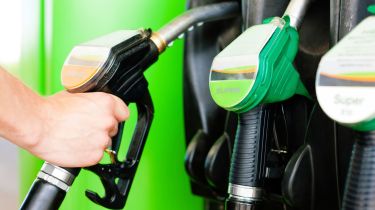Will fuel duty rise along with VED car tax in the April budget?
Analysts say treasury projections assume a 5p rise in fuel duty next March, with car tax also rising with inflation

Fuel duty and car tax could both be set to rise in the coming weeks, following recent decisions by chancellor Jeremy Hunt.
According to analysis of Hunt’s autumn budget statement by the Tony Blair Institute (TBI), treasury calculations underpinning November’s Autumn statement suggest we could be facing a return to the days of the hugely unpopular ‘fuel price escalator’.
The current 5p fuel duty discount intended as a ‘cost of living crisis’ response is due to end in March, meaning 5p will potentially be added straight back onto the pump price. Thereafter, drivers could face further rises from April when fuel duty is tied to the Retail Price Index.
“The chancellor assumes that fuel duty will rise by 5p on 23 March, and then rise in line with the retail-prices index from April 2024 onwards,” says the TBI. However, it’s by no means certain that such a rise will be deemed politically viable, and the TBI acknowledges that the government has not increased fuel duty for more than a decade. However, the Institute warns that were this fuel price freeze to continue, “tax receipts will be lower to the tune of £6.2 billion by 2028–29”.
What is the fuel price escalator?
The so-called fuel price escalator was introduced as policy by John Major’s conservative government three decades ago, when it was set to increase fuel duty annually by three per cent above inflation in an effort to put the brakes on soaring congestion. Tony Blair’s Labour government increased the annual rise to six per cent above inflation in 1997, but in the face of public protests over soaring fuel prices the rises were capped and fuel duty rises have been frozen by the conservatives since 2011. It was in the 2022 spring statement, that chancellor - now prime minister - Rishi Sunak reduced fuel duty by 5p a litre, although this measure aimed at reducing cost of living pressures on drivers has largely been swallowed by retailers such as supermarkets increasing profit margins instead of passing on the benefits to motorists.
What’s next for VED road tax?
While there’s room for uncertainty on forthcoming fuel duty measures, drivers should expect to see an increase in road tax in the coming budget, as the treasury has already announced its decision to increase rates from April in line with rises in the Retail Price Index (RPI).
An increase limited to below six per cent therefore seems likely, so the standard rate for cars registered from April 2017 could rise £10 to £190. For older cars registered pre-2010, the cost of vehicle excise duty (VED) could rise by £10 to £210 for smaller engines, and by £20 to £245 for those over 1,549cc.
However, for new car buyers paying higher first year car tax there’s likely to be more of a sting, with those first year charges rising by £100 or more, depending on emissions levels.
Meanwhile, the Tony Blair Institute is calling for widespread reforms of motoring taxation, once again with a view to tackling congestion.
“If we don’t act to reform motoring taxation now, we risk soon seeing too many cars out and about, with longer delays and higher road maintenance bills,” it says. “With fuel duty fading as a source of revenue, the government needs to set out a plan for moving towards road pricing as soon as possible. This needs to happen urgently, before too many people buy electric vehicles on the basis that they will not be taxed, making it impossible to introduce it later.”
Click here for our list of the cheapest cars to run...
Find a car with the experts





